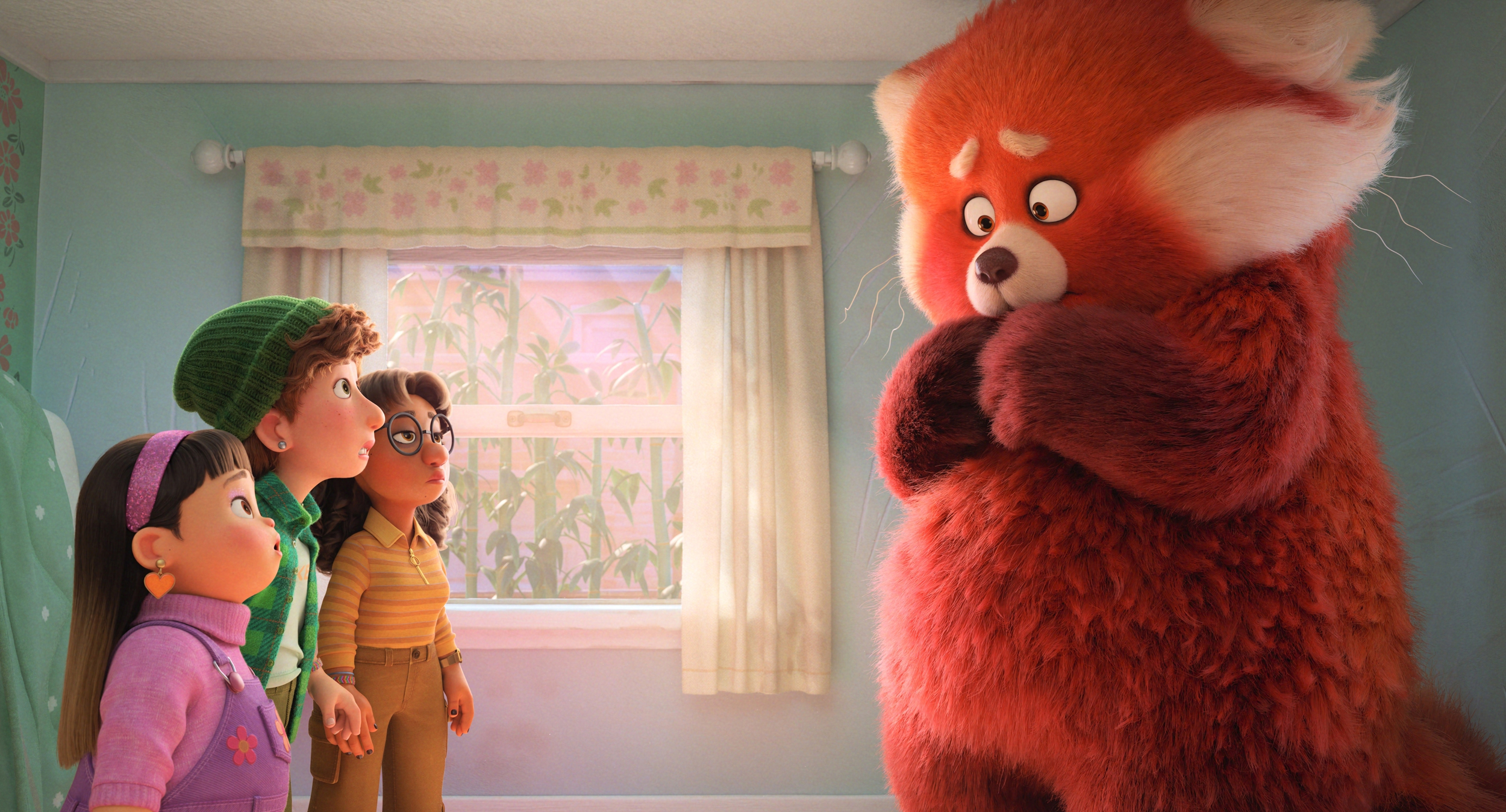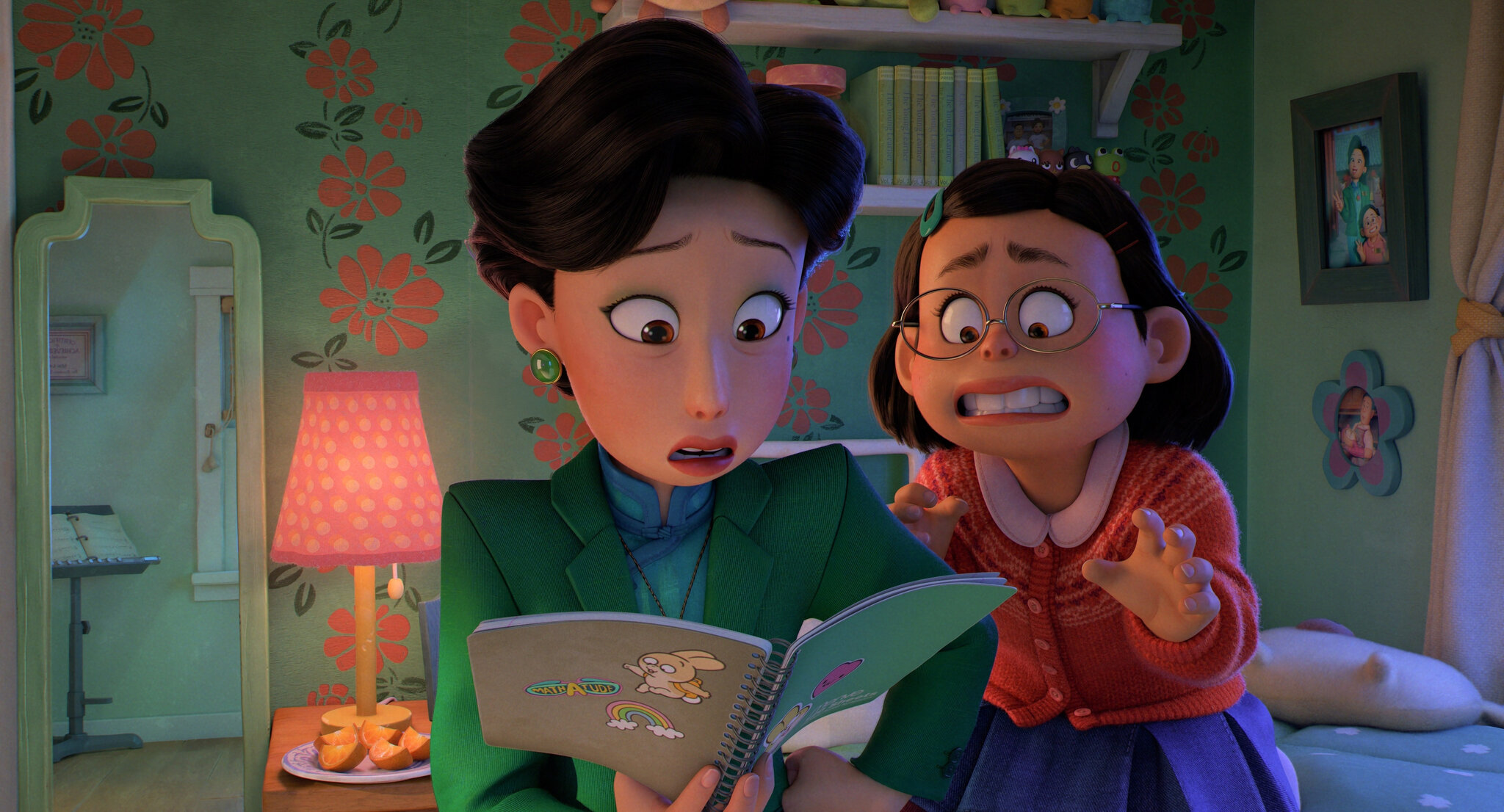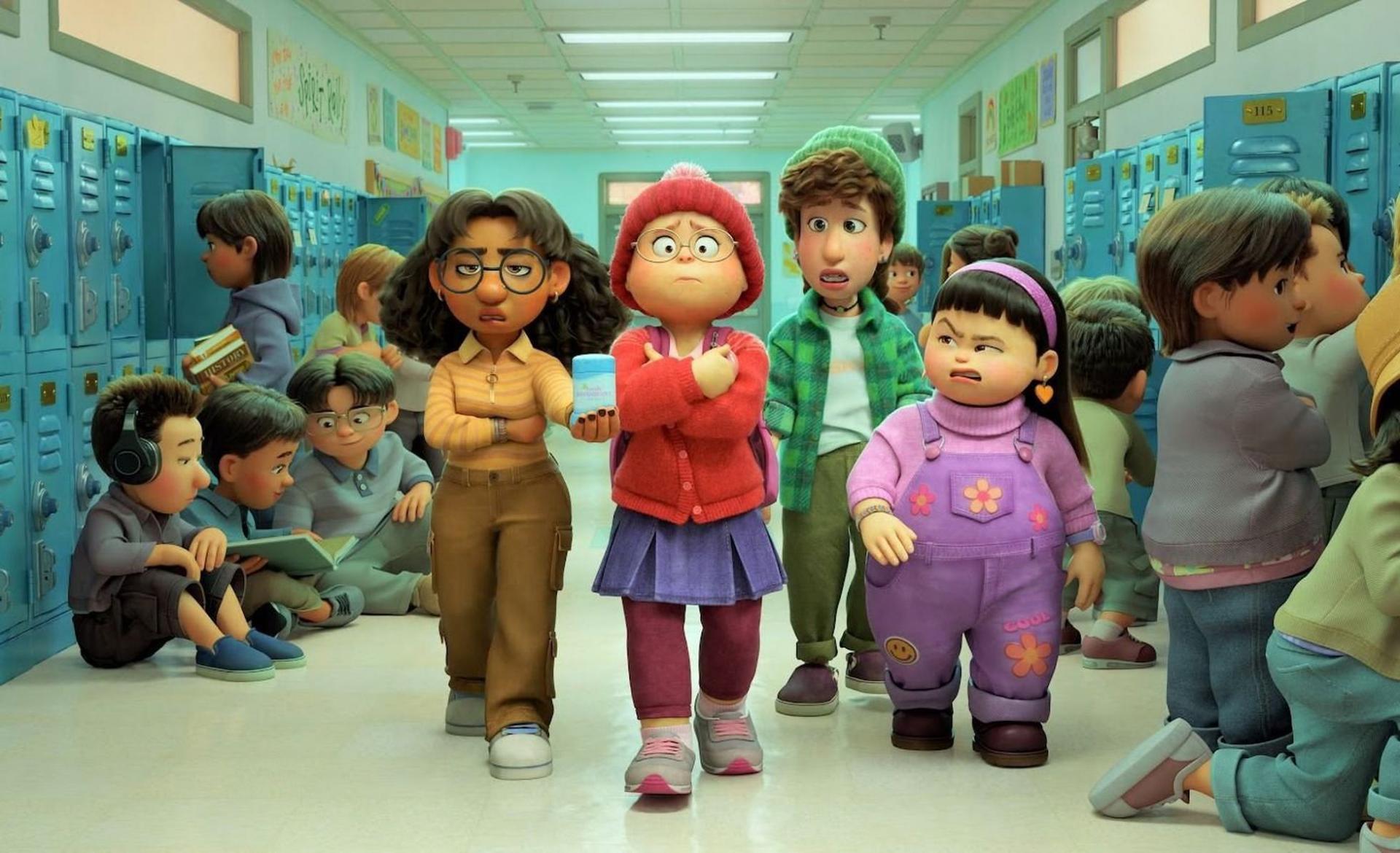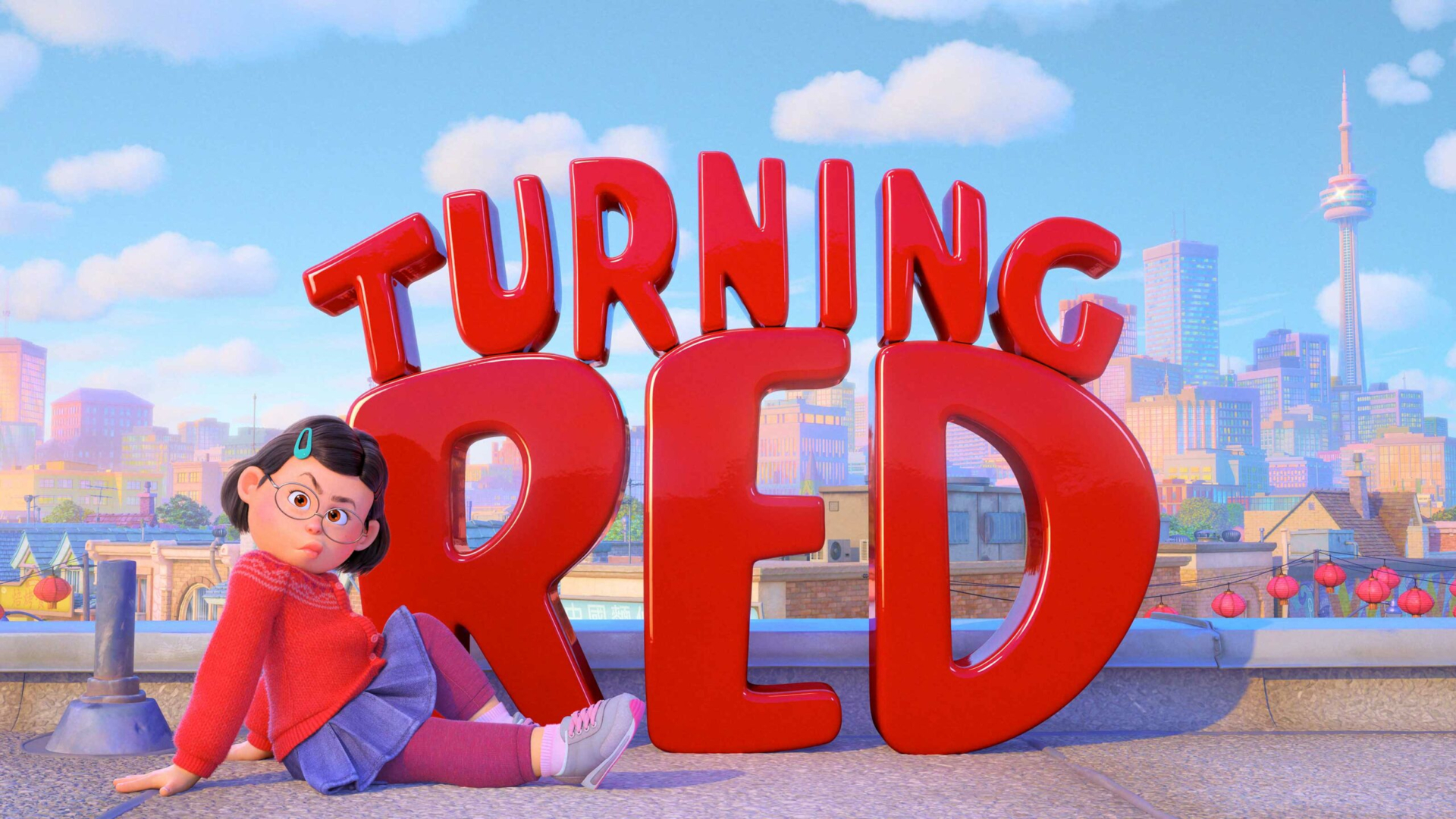Pixar has been a household name for decades thanks to their timeless animated films that offer a genuine and wholesome family experience and oftentimes a universal message that any living, breathing human being can relate to and Turning Red is no exception – or at least I didn’t think it was. I expected Turning Red to receive the praise most Pixar films are accustomed to at this point, if not more, as I genuinely think this is one of the best Pixar offerings in the last decade, which you can read our review of here. It’s uniquely stylized with lovable characters and is utterly hilarious, but apparently, since its release, some have decided that they no longer want to be considered living, breathing humans as some of the arguments I’ve seen could not possibly have been thought of and believed by an actual person, suggesting that the film “promotes rebellion”, or stating it “glorifies finding yourself” as if that’s a bad thing, and the most egregious of which… ‘it’s not relatable’.
Turning Red Unrelatable? Controversy?
Take Youtuber Sean Chandlers’ video review for example, in which he claims Turning Red is a “specific, targeted film” and states it’s very “alienating”. I for one cannot see a valid angle in an argument like this when just moments prior to this claim, he raves about how Pixar has always had “deep, rich, human emotions”, yet is somehow unable to find them in this film. Chandler does go on to make a couple of respectable points, but when it comes to this specific talking point and the term ‘alienating’, I’m sorry, but that argument holds no water. There is also this tweet that features a collection of truly baffling reviews that I almost cannot believe are real. We as critics, and people in general for that matter, are surely better than this, right? We should be able to read into subtext but even as blatant as it is here, people are still getting confused. I was genuinely taken aback to see people actively claim that a movie about a 13-year-old going through hormonal changes is ‘unrelatable’. Fish, toys, robots, bugs, cars, rats, are all totally relatable but a human Asian girl experiencing the first symptoms of pubescence and the early stages of adulthood? No, that is simply too far out for them. They just can’t suspend their disbelief to that extent. And for an experience as universal as puberty, something every human being has gone through, to be labeled as “unrelatable” is just too baseless for me to comprehend.
To be abundantly clear, I have no issue if people have legitimate complaints about the film – it is a very high-energy, over-the-top film and for some that could be a bit much, I totally understand and respect personal taste. But what I can’t get behind is people making up arbitrary reasons to spread hate about a film based on something that just isn’t there. And saying Turning Red is ‘unrelatable’ is doing exactly that. I’m curious as to how many of these people have actually lost their children at sea only to find them in an entirely different continent on the other side of the planet, or had to journey through an unfamiliar city to recruit a group of circus performers to assist in defending their village against an army of violent oppressors? You do not have to relate one to one with every aspect of a narrative in order for it to be relatable, it’s a foundation of cinema to present humanity in places we aren’t familiar with and I really thought we were long past these types of thoughtless criticisms but, apparently not.

Universal Struggles
Beyond the confusing times one goes through while experiencing adolescence for the first time, most of us can also relate to simply wanting to go out and spend time with friends only to be told no by our parents. Mei (Rosalie Chiang) has one goal throughout the film – to go to her favorite boyband concert with other friends. However, her mother Ming (Sandra Oh), prevents her from doing so on the grounds that this is counterproductive to Mei’s development, something that many of our parents have had concerns about throughout our lives. Whether this manifests itself through video games, movies, or a plethora of other hobbies and activities our parents may disagree with, we have all had to sit out on some experiences with our friends and at that age, it truly does feel like the end of the world. But as much as Mei wants to be with her friends, she doesn’t want her family to feel as if they’re being left behind, which is yet another theme that is accessible to so many people, a balance between family life and personal development.
No one wants to be stuck with their parents forever and during the early stages of young adulthood, these feelings can be magnified to unreasonable proportions at times. You’re developing your own thoughts, opinions, and desires and these can often differ from those of your parents. But there is a balance between individualism and family life, and it’s a years-long struggle to find the perfect balance if ever found at all. We see this internal conflict with Mei throughout the course of the film but perhaps most of all when she ultimately decides to keep her panda when the rest of her family separates from it. This allows Mei the sense of self she had been searching for while still maintaining a healthy relationship with not only her mother but her family as a whole, which people then promptly misconstrued as ‘promoting rebellion’ or ‘disobedience’. It’s impressive really, just how incapable some are of accepting that the development of children is a natural part of life. Character development is something that is not only an important part of fiction, but in our real lives as well. We can learn so much from well-written characters, especially when those characters are going through everyday life. While I am by no means suggesting we should base our own development on works of fiction, we can learn bits of fundamental life lessons from auteurs when they offer a glimpse of their own experiences in their work.

Vivid Hypocrisy
Pixar has dealt with real human issues a number of times in the past and perhaps no more clearly than in 2015’s Inside Out, which was met with universal praise and critical claim. I remember vividly just how popular the film was and what it meant for people who had dealt with mental illness in any capacity. Turning Red is also dealing with changes of emotion and just how overwhelming that can be, albeit in a bit more of a lighthearted way, but has far more hate being spewed at it than Inside Out ever did. Why is this? Well, to be blunt I do find it very suspicious that a film where a young white girl struggling with her emotions can be so universally loved but a film where a young Chinese girl struggling with her emotions is so polarizing. Maybe it isn’t that simple but to be honest, given the recent years of Anti-Asian hate ravaging both the United States and Canada, it looks that way. That being said, I don’t want to come off as trying to bash Inside Out. I think it’s one of, if not the most, emotional Pixar films to date and tells an important story for so many people, but so does Turning Red, and the fact that it’s not getting the same respect is shameful and repulsive.

But it isn’t all bad – as doom and gloom as I may have come off, Turning Red is receiving tremendous praise from more people than not, as well it should, and that far outweighs any of the worthless and insignificant hateful opinions. It deserves so much more than to be disregarded for the representation of Chinese culture and should be appreciated for telling a story about the human experience. It’s also adorable and incredibly charming while also being genuinely the funniest Pixar film I think I’ve ever seen. The blend of comedy and true emotion is handled near flawlessly, which is a feat in its own right. It has sparked controversy after talking about “taboo” topics. Turning Red is yet another Pixar classic that will inevitably stand the test of time regardless of what little-minded people have to say, which is the true power of Pixar.

Comments